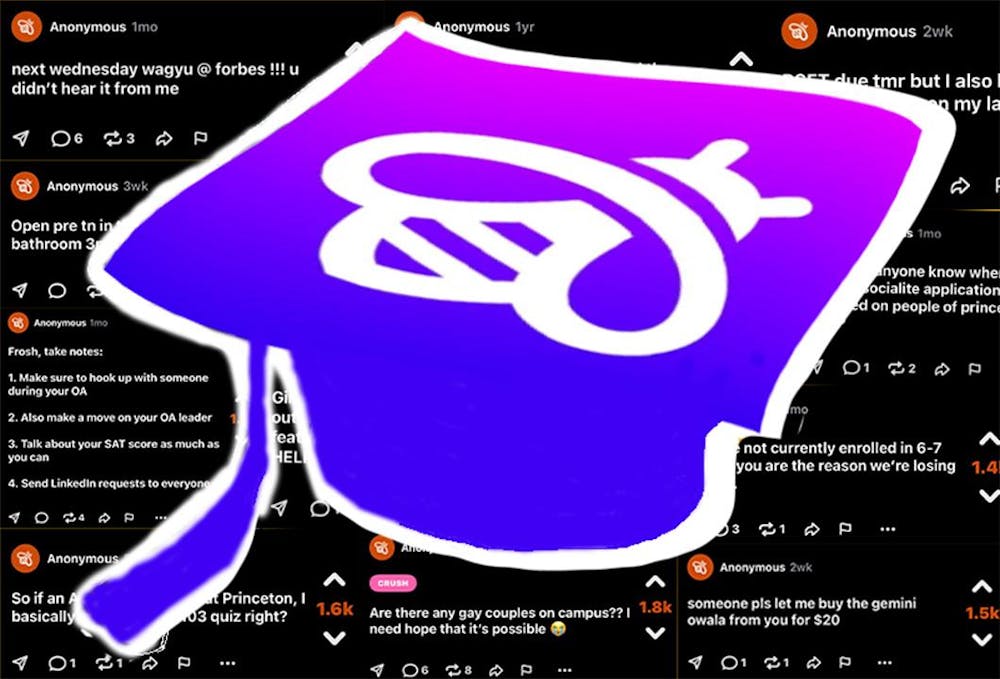Leftists at Princeton cheer the assassination of Charlie Kirk — at least, that’s what you would think if you’ve been reading the Opinion section of this newspaper lately.
On Sept. 17, Tigers for Israel President Maximillian Meyer ’27 declared that Princeton’s progressives exhibit “a willingness to cheer violence itself.” Princeton Tory Publisher Zach Gardner ’26 didn’t go quite so far, but did say that students “treat bloodshed flippantly,” at least in the context of Kirk’s assassination.
These are lofty claims about huge swaths of the Princeton community, serving as substantive planks in two columns that portray Princeton’s conservatives as defenders of free speech and “left-leaning students” as eroding or attacking it.
Here’s one problem: large portions of both their arguments rest on evidence drawn from Fizz. For the uninitiated, Fizz is a campus social media app where any Princeton student can say anything at all, true or false, behind the veil of anonymity. For example, as I wrote this column, I opened Fizz and posted “My name is Bob,” although it is not.
It is remarkable that I have to say this: Fizz is not real life. Using posts from the app to substantiate claims about real, in-person, de-anonymized campus life is intellectually dishonest and risks unnecessarily inflaming political tensions on campus.
To make the point that campus liberals “cheer violence itself,” Meyer cites three separate Fizz posts — with no other evidence — and concludes that they represent “an unacceptable slide towards moral depravity.” Gardner wrote that those “who took to Fizz to mock the death of Charlie Kirk” possess “a deeper darkness that words can hardly confront.” He also cites Fizz posts as evidence that an ideology that “dispenses with arguments altogether, seeking silence for its opposition” thrives on campus.
The anecdotal Fizz evidence used by Meyer and Gardner is, first and foremost, egregious cherry-picking. The three posts quoted by Meyer received a combined 147 upvotes — a laughable total. And those posts, of course, don’t paint a complete picture of the discourse on Fizz, much less actual campus discourse. A post reading “Violence is never justified, pray for him” received 958 upvotes. “God bless Charlie Kirk” received 243.
A quick search for “Charlie Kirk” on Fizz reveals the full extent of these competing sentiments: 10 of the posts made since Kirk’s assassination celebrated or made light of the situation. Nine expressed their distress and disapproval. A few others were related but expressed no opinion on the subject. Although any celebration of violence is regrettable, this is a remarkably balanced set of posts, a fact that is lost amid Meyer’s and Gardner’s dishonest argumentation.

Another rather self-evident problem with using Fizz to evidence claims about campus politics is the reality that political extremism thrives on the platform. I have lost count of the instances of virulently racist discourse that have appeared on the app. For example, last spring, an anonymous poster wrote that “the 60’s were a mistake,” referring to the civil rights movement, and another said “lol they crave segregation,” referring to Black Americans in the present. These are abhorrent, racist statements, but I would not use them as evidence that Princeton’s conservatives are, as a whole, intemperate segregationists.
An anonymous platform where people can post anything they want breeds extremist discourse, unrestrained by potential social or material consequences. Serah Judd, a student columnist at The Hilltop, put it well: “The anonymous posting on Fizz quells dissent and critical thought, as the more reactionary posts are practically guaranteed to trend.”
It is, I must point out, generally a good rule to distrust evidence from Fizz: If someone claiming that something is happening in real life cannot point to anything that has actually happened in real life and is instead forced to substantiate that claim with anonymous posts from a social media app, it is probable — likely, even — that nothing of the sort is happening in real life at all.
With this dishonesty, Meyer and Gardner undermine their own stated values. You cannot pretend to be a proponent of “honest dissent and earnest dialogue” when you dishonestly strawman your ideological opposition. Princeton’s leading conservative voices need to choose: Do they support actual discourse — including and emphasizing honest, evidentiated, and sophisticated argumentation — or do they only claim to do so as a smokescreen for advancing censorship of pro-Palestinian and other progressive speech?

Beyond the deceit in Meyer’s and Gardner’s columns, their arguments unwarrantedly inflame campus discourse. They exaggerate divisions between the right and left on campus in their dishonest portrayals of each group. In reality, conservatives and liberals on campus are far less extreme and violent than the caricatures of them that exist on Fizz would suggest. By portraying campus liberals as violent and extremist, Meyer and Gardner discourage the very kind of dialogue they claim to support.
Perhaps campus discourse really is “anemic,” as Gardner suggests. But that is not an issue caused only by campus progressives: We and our conservative counterparts share responsibility for that problem and its solutions. So I agree, in part, with Gardner’s conclusion: “don’t gossip on Fizz.”
And stop pretending Fizz is real life. Talk to each other instead.
Isaac Barsoum ’28 is a sophomore prospective Politics major from Charlotte, N.C., who thinks you need to log off Fizz. You can read his column here. You can reach him at itbarsoum[at]princeton.edu.








